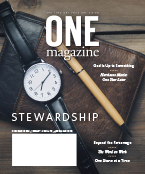
February-
March 2019
Stewardship
------------------
|
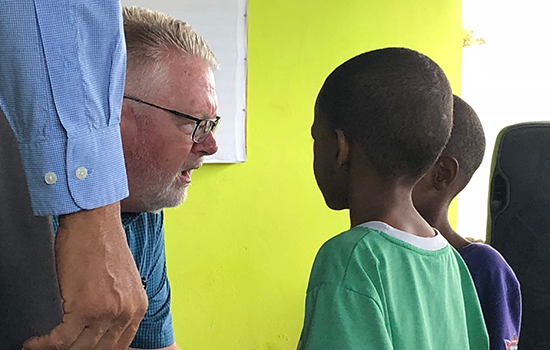




A missionary looks back at ministry in Panama and forward to the church's promising future...
Steps of Faith
By Stan Bunch
“Missionaries are the only people in the world who should strive from day one to work themselves out of
a job.”
As a new missionary arriving in Panama in 1986, that statement was challenging. I now understand that while the intent is great, the overall premise is flawed. We never become “jobless.” However, our tasks, challenges, and roles may change considerably over time.
The Free Will Baptist Association of Panama has been blessed in many areas. First, historically, missionaries themselves always had positive working relationships. In turn, this created a positive working relationship with and among national leadership. Since 2014, when the Torrisons and Collins transitioned into different ministries, IM has not had a continual missionary presence in Panama. Yet the growing ministry continues—training leaders, planting churches, and even evangelizing surrounding countries.
Baby Steps
In the late 1980s and early ‘90s, Panamanian church leaders began to determine, or express, who they were theologically and doctrinally. In particular, because of the unavoidable impact of the much larger Pentecostal movement (roughly 90% of all evangelicals), they recognized a need to clarify who they were as Free Will Baptists regarding spiritual gifts and worship expression. As a relatively new missionary at the time, I watched more experienced missionaries—Steve and Judy Lytle
and Ron and Linda Calloway—join with national leaders to lead wisely and patiently through what could have been turbulent waters.
Over two to three years, missionaries and Panamanian leaders dialogued, prayed, studied, and sought to understand the various thoughts and convictions expressed. Eventually, rather than dividing and retreating to respective cultural and doctrinal corners, we came away with an appreciation and respect for our differences, which, in reality, proved minimal and non-essential. Working together through difficult, but essential, discussions strengthened the overall ministry.
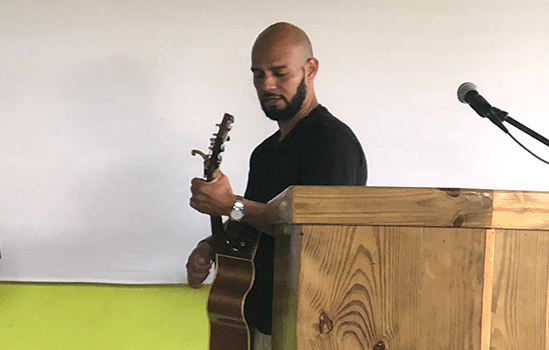
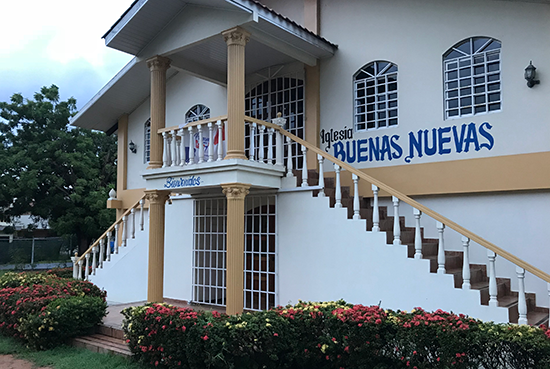
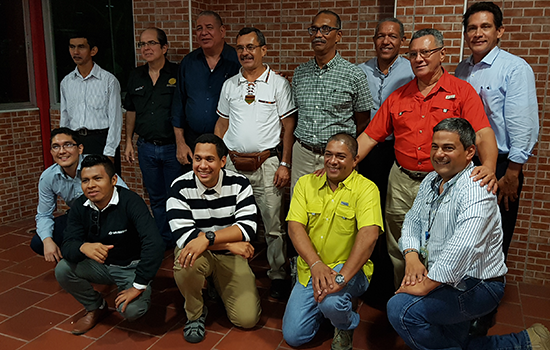
At one time, marathon business sessions during the annual convention in Panama were frustrating and, quite honestly, boring. As Panamanian leaders gained experience and confidence and learned to organize the meetings better, attendance and participation grew. Today, during the business sessions, delegates and attendees rejoice to hear what God is doing throughout the country.
Missionary Larry Inscoe desired to develop a local association of churches in the Azuero Peninsula of Panama. The Inscoes, along with our family, worked in the cities of Las Tablas, Parita, and Chitré. The congregations of these churches celebrated occasional times of fellowship. After our transition to the States in 2012, the pastors of the Azuero-area churches, as well as their various mission works, began meeting monthly for the purpose of training, encouragement, and outreach. Their goal is not to perpetuate meetings but to help fellow leaders and congregations in prayer, outreach, and evangelism, encouragement, and accountability. When visiting, I may hear, “Hey, Jorge, you haven’t baptized anyone in five months. How can we help you?” I think we in the United States can learn something from these Panamanian leaders.
God allowed Free Will Baptist missionaries to participate in establishing numerous churches and various mission outreaches. The Willeys, Fulchers, Inscoes, Lytles, Bunches, Torrisons, Collins, and Bowermans were all involved in the Panamanian Bible Institute, started as a training ministry for leaders. Under the leadership of the Bowermans, the institute became a full-time seminary with facilities in Chame. The campus also serves as a location for youth camps, retreats, seminars, the annual convention, and a boarding house for visiting groups.
Many times, during our 29 years of service with IM, we were asked, “Was it hard to leave your family, home, language, and culture and go to another country?” The answer is obvious. However, since things have come full circle, and we have left our adopted country of Panama we can answer the question better. The response to the same question is now, “Yes, it was difficult to take three small children to a different culture where we really didn’t know anyone. However, it was much more difficult to leave that place than it was to go in the first place.”
Steps of Faith
Why is that the case? It took a step of faith for faithful believers to pray, send, and financially support missionaries. It is a step of faith for the missionary to launch out into the unknown. After more than 25 years, that “unknown” became our “known.” Panama was home. Panamanians were our adopted family. (We had the same neighbors for over 20 years.) We were quite comfortable with the language and culture. Transitioning out of a ministry, particularly international missions church planting, required another huge step of faith. It meant taking a step back and trusting God to lead our dear Panamanian brothers and sisters to take what had been our lives—not just a ministry—forward to accomplish even greater things for God’s glory.
Steps Forward
What is happening? Since missionaries transitioned away from Panama, the number of congregations has nearly doubled. Every organized church is starting at least one other church, and in some cases, two or three. The church in Chitré is supporting a young Venezuelan believer sent back to his country to establish a Free Will Baptist church in that country. The seminary is under Panamanian leadership and is well on the way to becoming nationally accredited. Second and third generation believers are stepping up to lead churches and ministries. Seminary graduates are initiating outreach ministries into remote areas of neighboring Colombia, while aware of the physical risks involved.
Each year, Brenda and I are blessed to return to Panama at least once to teach, train, and encourage those to whom we ministered for almost three decades. Our hair is gray, just like the leaders we met in 1986 when we first arrived. The ministry in Panama is in the capable hands of those leaders. A younger generation is doing an outstanding job of allowing the Holy Spirit to fill, empower, and lead them as they lead the churches. To be quite honest, when we visit, and I see what our precious brothers and sisters are accomplishing for the glory of God with far fewer resources, many times I feel like I am now the disciple and they are the leaders.
You still have many opportunities to be involved in Panama. The Chame Seminary is a great ministry to support. Over half the pastors in Panama are graduates of the seminary. The Chame FWB Church was born out of the seminary. The congregation is in the process of purchasing a beautiful parcel of land with buildings as a strategic location for their church activities. For more information on investment and ministry opportunities in Panama contact the IM office.
Note: Giving to the World Missions Offering supports ministry in Panama.
About the Writer: Stan Bunch and his wife Brenda were appointed to overseas missionary service in Panama, Central America, in 1983. While in Panama, the couple and their three children Jonathan, Alicia, and Amanda helped start three churches. The most recent officially organized August 27, 2011. Today, the ministry in Panama is under the leadership of Panamanian Free Will Baptists. Learn more: IMINC.org.
|
|

